Mathematics Division
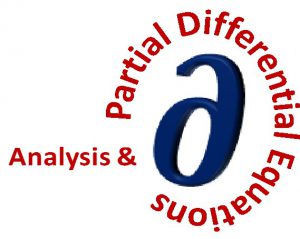
Analysis
Analysis is the branch of mathematics concerned with the concept of limit and theories of differentiation, integration, measure, infinite series and analytic functions. Its roots can be traced from the study of calculus whose discovery was motivated by the applications in physics and optimization. The Analysis cluster at IMSP focuses on the theory and applications of partial differential equations, numerical analysis, approximations, inverse problems and quantum graphs.
Members: Dr. Ariel L. Babierra, Dr. Neil Jerome A. Egarguin, Dr. Eduardo O. Jatulan, Dr. Editha C. Jose, aProf. Jcob C. Malaguit, aProf. Mark Allien Roble
Members: Dr. Ariel L. Babierra, Dr. Neil Jerome A. Egarguin, Dr. Eduardo O. Jatulan, Dr. Editha C. Jose, aProf. Jcob C. Malaguit, aProf. Mark Allien Roble


BioMathematics
The BioMathematics Research Cluster was set up in the year 2010 by mathematics educators, researchers, and students of the Institute of Mathematical Sciences and Physics (IMSP) who work with people from other fields of study such as biology, biophysics, computer science, statistics, chemistry, environmental science and management, agriculture, and forestry.
The Biomathematics Research Cluster is recognized as the 2019 CAS Outstanding Research Team.
Members: Dr. Jomar F. Rabajante, Dr. Maica Krizna A. Gavina, Dr. Jerrold M. Tubay, aProf. Dylan Antonio S.J. Talabis, aProf. Monica C. Torres, aProf. Jcob C. Malaguit
The Biomathematics Research Cluster is recognized as the 2019 CAS Outstanding Research Team.
Members: Dr. Jomar F. Rabajante, Dr. Maica Krizna A. Gavina, Dr. Jerrold M. Tubay, aProf. Dylan Antonio S.J. Talabis, aProf. Monica C. Torres, aProf. Jcob C. Malaguit

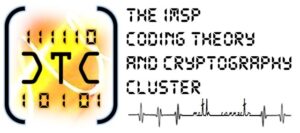
Coding Theory and Cryptography
The IMSP Coding Theory and Cryptography Cluster focuses mainly on problems that deals with the construction and analysis of codes and cryptosystems using algebraic methods and other related theories. The cluster aims to contribute to the growth and development of coding theory and cryptography research in the Philippines. We envision a strong and dynamic research team collaborating with academicians, graduate students, and practitioners in private and public agencies to solve real problems in the time of big data.
Members: Dr. Herbert S. Palines, Dr. Virgilio P. Sison, aProf. Ben Paul B. Dela Cruz, aProf. John Mark T. Lampos, aProf. Romsto R. Pajarillo, aProf. Jane D. Palacio, aProf. Krizal John C. Espacio
Members: Dr. Herbert S. Palines, Dr. Virgilio P. Sison, aProf. Ben Paul B. Dela Cruz, aProf. John Mark T. Lampos, aProf. Romsto R. Pajarillo, aProf. Jane D. Palacio, aProf. Krizal John C. Espacio

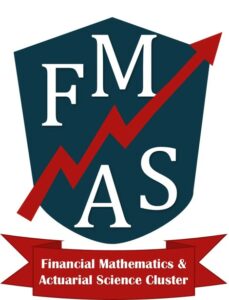
Financial Mathematics and Actuarial Science
Previously known as the Actuarial Science Cluster, the Financial Mathematics and Actuarial Science (FMAS) Cluster is one of the original applied mathematics clusters and continues to be one of the strongest in terms of student population. Committed to its goal of providing quality education in the field of Actuarial Science and Financial Mathematics since its inception, the cluster aims to produce graduates that are ready to enter the workforce and are equipped with skills and knowledge to pass actuarial exams. It envisions to become a strong program producing papers in a wide range of application and specialization.
Members: Dr. Crisanto A. Dorado, Dr. Jeric S. Alcala, aProf. Azra May. B. Kabiri, aProf. Jonathan B. Mamplata, aProf. Angelo E. Marasigan, aProf. Lester Charles A. Umali, aProf. Edd Francis O. Felix
Members: Dr. Crisanto A. Dorado, Dr. Jeric S. Alcala, aProf. Azra May. B. Kabiri, aProf. Jonathan B. Mamplata, aProf. Angelo E. Marasigan, aProf. Lester Charles A. Umali, aProf. Edd Francis O. Felix

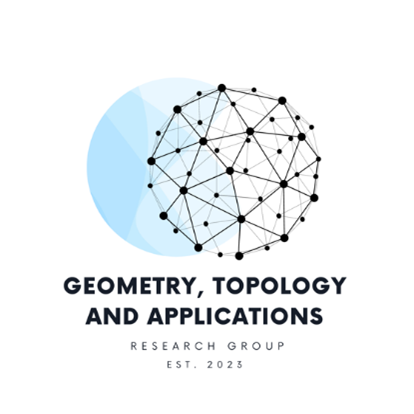
Geometry, Topology, and Applications
The Geometry, Topology, and Applications Research Group (GTA) is focused on the study of geometric and topological structures of spaces, their applications, as well as the relationships between these structures and other areas of mathematics. Geometry is the branch of mathematics that deals with the properties and relationships of points, lines, angles, surfaces, and solids. Topology, on the other hand, is the study of the properties of objects that are preserved under continuous transformations, such as stretching, bending, and twisting. Both fields are fundamental to many areas of mathematics and have numerous applications in science, engineering, and computer science. The GTA research group explores a variety of topics within geometry and topology, including algebraic geometry, differential geometry, algebraic topology, low-dimensional topology, symplectic topology, and homotopy theory. Applications of these fields include in the study of topological data analysis, robotics, computer vision, image and signal processing, data science, and machine learning. GTA members collaborate with researchers from other disciplines to apply geometric and topological methods to problems in these areas.
Members: Dr. Mark Lexter D. De Lara, aProf. Jcob C. Malaguit aProf. Jessa Camille C. Duero, aProf. Romsto R. Pajarillo, aProf. Marc Aaron F. Julian
Members: Dr. Mark Lexter D. De Lara, aProf. Jcob C. Malaguit aProf. Jessa Camille C. Duero, aProf. Romsto R. Pajarillo, aProf. Marc Aaron F. Julian


Graph Theory and Combinatorics
GraphComb (formerly GTC), is the research cluster of the Mathematic Division devoted in the examination of classic and emerging problems in the area of graph theory and combinatorics. The cluster is keen towards the areas of graph labeling (such as graph signatures, autographs, graceful labeling and harmonious labeling); the hamiltonian problem (related to forbidden subgraphs and fault-tolerant graphs); graph algorithms; minimal graphs; enumerative combinatorics; and pattern avoidance. At its frontier, the cluster has interest in combinatorial problems related to tessellations, fractals and projective geometry.
Members: Dr. Ariel L. Babierra, Dr. Lauro L. Fontanil, Dr. Jean O. Loyola, aProf. Genaro A. Cuaresma, aProf. Wielson M. Factolerin, aProf. Vernel M. Lawas, aProf. Jane D. Palacio
Members: Dr. Ariel L. Babierra, Dr. Lauro L. Fontanil, Dr. Jean O. Loyola, aProf. Genaro A. Cuaresma, aProf. Wielson M. Factolerin, aProf. Vernel M. Lawas, aProf. Jane D. Palacio

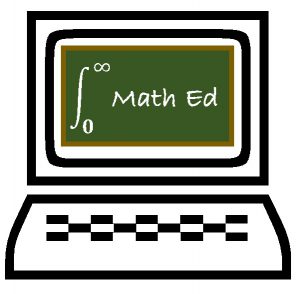
Mathematics Education
Mathematics Education is a flourishing field of mathematics that caters to the trends on how instruction in mathematics is conducted. It also allows opportunities to look into the various issues regarding student performance in class or in general how they learn mathematics specifically gearing towards problem solving. And finally, it also looks into the issue of curricular development, specifically on how math has evolved from the primary to the tertiary level of the education system.
The group/research cluster primarily aims to assess and propose solutions on how the teaching and learning of mathematics is conducted, be it in the primary, secondary or tertiary school levels. Other issues relating to mathematics learning and/or teaching will also be an integral part on what the group will be working into.
Members:
The group/research cluster primarily aims to assess and propose solutions on how the teaching and learning of mathematics is conducted, be it in the primary, secondary or tertiary school levels. Other issues relating to mathematics learning and/or teaching will also be an integral part on what the group will be working into.
Members:


Mathematics of Reaction Networks
The Mathematics of Reaction Networks (MoRN) Cluster aims to study a variety of methods for approaching questions about the dynamical behavior of (chemical) reactions arising in real world applications. On the theoretical side, research problems focus on the connection between network structure and properties of dynamics, that is, independent of certain parameters. Specifically, MoRN concentrates on reaction networks endowed with power law kinetics. They are gaining attention since they give rise to dynamical systems frequently seen in heterogeneous, crowded intracellular environments. Results of MoRN can be applied in the analysis of biochemical and biological processes which can be the main thrust of research of applied mathematicians.
Members: Dr. Lauro L. Fontanil, Dr. Editha C. Jose, aProf. Dylan Antonio S.J. Talabis
Members: Dr. Lauro L. Fontanil, Dr. Editha C. Jose, aProf. Dylan Antonio S.J. Talabis

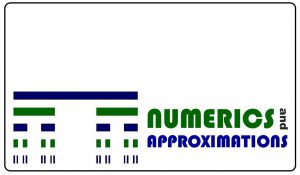
Numerics & Approximations
NumAp (short for Numerics & Approximations) is the youngest research cluster of the Mathematic Division. The cluster tackles wide-ranging research topics in numerical analysis and approximation theory from theories to applications. The cluster started as a training laboratory for numerical methods and scientific computing. At present, its members are doing researches in numerical optimization; numerics of PDEs; continuum mechanics; image processing; inverse problems; and numerical simulations of complex systems.
Members: Dr. Ariel L. Babierra, Dr. Neil Jerome A. Egarguin, Dr. Jomar F. Rabajante, aProf. Jcob C. Malaguit
Members: Dr. Ariel L. Babierra, Dr. Neil Jerome A. Egarguin, Dr. Jomar F. Rabajante, aProf. Jcob C. Malaguit

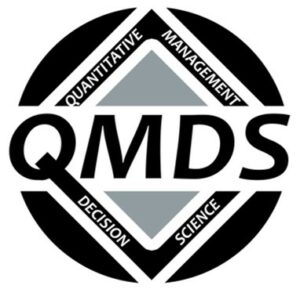
Quantitative Management and Decision Science
The Quantitative Management and Decision Science (QMDS) cluster specializes on the use of decision-making tools using quantitative methods. Most of the models used are those in operations research. Operations Research (OR) is the discipline of applying advanced analytical methods from mathematics, science and engineering to make better decisions in planning ventures and analyzing options. Operations Research is characterized with its broad applicability by its interdisciplinary nature.
Members: Dr. Jomar F. Rabajante, Dr. Mark Jayson V. Cortez, Dr. Mark Lexter D. De Lara, Dr. Maica Krizna A. Gavina, Dr. Jerrold M. Tubay, aProf. Genaro A. Cuaresma, aProf. Gimelle B. Gamilla, aProf. Jcob C. Malaguit, aProf. Emerson R. Rico, aProf. Dylan Antonio S.J. Talabis, aProf. Monica C. Torres
Members: Dr. Jomar F. Rabajante, Dr. Mark Jayson V. Cortez, Dr. Mark Lexter D. De Lara, Dr. Maica Krizna A. Gavina, Dr. Jerrold M. Tubay, aProf. Genaro A. Cuaresma, aProf. Gimelle B. Gamilla, aProf. Jcob C. Malaguit, aProf. Emerson R. Rico, aProf. Dylan Antonio S.J. Talabis, aProf. Monica C. Torres

